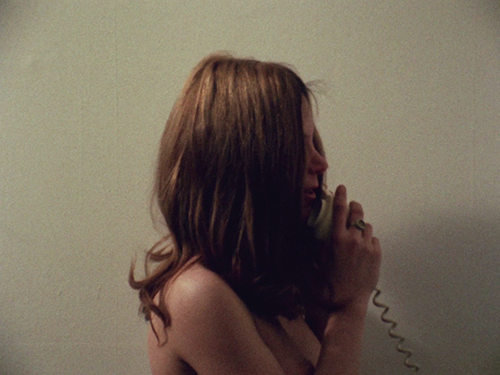
Filmed in the UK in 1969, this documentary by Godard and the Dziga Vertov Group represents an analysis of production and the status of women in capitalist society and a speculation about class consciousness and the need for political organization. A group of men formed by trade unionists and employers debate on what measures would benefit their respective classes. At the same time, a group of young hippies tested several Beatles songs.
“We get less pay for the same work as men. We’re less likely to get jobs […] We’re less likely to be educated, less likely to be unionized. The present setup of the family puts great strains on us. Either we’re struggling to combine badly paid work with bringing up a family or unable to do work for which we’ve been trained. Ideology and beauty. The area of taboo on our sexuality is much more extensive, and the double standard is still pervasive. Some women still never experience orgasm. Hitler and Hollywood. When we complain, it’s about little things. We want to drive buses and play football. We don’t want to be brought with bottles or expensive wines. Exploitation of women. We don’t want to be wrapped up in cellophane, sent off to make tea or shuffled into the social committee. And when you complain about the little things, you get stuck in the little things. It’s difficult to get out of them. It’s difficult to get beyond them. The jungle of sex. And there’s no way they can be dismissed because people say, ‘Well, you’re just trying to be as men.’ But it’s the little things which happen to you all the time…Virgin land.…every day, all the time, wherever you go, all your life, which make revolutions. Revolutions are about little things. It’s here that the subordinated relates to the dominated. It’s here that discontent focuses. The problem of women. The problem of the farm labourers... it’s here the experience is felt, is expressed, articulated, resisted through the particular. Man. City. Woman. Country... the particular pummels you gently into passivity, so that you can’t even see beyond the little things, beyond the particular. We don’t how to find one another or ourselves. Freudian revolution, Marxist sexuality. [...]”
Voice over in British Sounds1
“In 1968, for the most radical – the most leftist – fringe of filmmakers, one thing is certain: you have to learn to get away from the movie theater (from cinephilia, from obscurantism) or at least connect it to something else. And to learn you have to go to school. Not so much the “school of life” than to the cinema as school. That was how Godard and Gorin came to transform the scenographic cube into a classroom, the film dialogue into a recitation, the voice-over into a lecture, the shooting into a practical, the film topic into course headings (“revisionism”, “ideology”) and the film-maker into a schoolmaster, tutor or supervisor. School thus becomes the good place which removes us from cinema and reconciles us with “reality” (a reality to be transformed, naturally). It’s the place which has brought us the films of the Dziga-Vertov group [...].”
Serge Daney2
“At every point in British Sounds, the prosaic quality of these images is at odds with the fervent, polemical nature of the soundtrack, which is a near-constant exhortation to Marxist revolution. The film's purpose is most obviously demonstrated in the frequent voiceover interludes in which the male and female narrators teach slogans and bits of revolutionary history to a young child, who dutifully repeats whatever they tell him by rote. This suggests, to say the least, a somewhat uncharitable characterization of the target audience for this kind of film — if these segments are to be taken at face value, Godard and his collaborators saw the Dziga Vertov Group as a revolutionary schoolhouse, imparting knowledge to common people as though they're children in need of an education. At one point, the voiceover contrasts bourgeoisie films (Hollywood, of course, with Gone With the Wind cited by name) and revisionist films (read as "Soviet" in this context) against the truly revolutionary films that they wish to make. The revolutionary film, the voiceover declares, is like a blackboard on which political ideas can be discussed and debated. This ideal of open debate is contradicted by the condescending and narrowly didactic tone with which this material is delivered; it's hard to imagine anything so strident and polemical fostering real discussion.”
Ed Howard3
- 1Find a full transcript here.
- 2Serge Daney, “The Therrorized (Godardian Pedagogy),” Diagonal Thoughts, 12 August 2012. Originally published as « Le thérrorisé (pédagogie godardienne) », Cahiers du Cinéma 262-3 (January 1976).
- 3Ed Howard, “British Sounds,” Only the Cinema, 11 August 2008.

